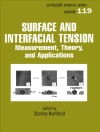Organic reactions are chemical reactions involving organic compounds. The basic organic chemistry reaction types are addition reactions, elimination reactions, substitution reactions, pericyclic reactions, rearrangement reactions, photochemical reactions and redox reactions. In organic synthesis, organic reactions are used in the construction of new organic molecules. The production of many man-made chemicals such as drugs, plastics, food additives, fabrics depend on organic reactions. A chemical mechanism describes in detail exactly what takes place at each stage of an overall chemical reaction (transformation). It also describes each reactive intermediate, activated complex, and transition state, and which bonds are broken (and in what order), and which bonds are formed (and in what order). A complete mechanism must also account for all reactants used, the function of a catalyst, stereochemistry, all products formed and the amount of each. It must also describe the relative rates of the reaction steps and the rate equation for the overall reaction. Reaction intermediates are chemical species, often unstable and short-lived, which are not reactants or products of the overall chemical reaction, but are temporary products and reactants in the mechanism’s reaction steps. The present book deals with all the important dimensions of this subject. It is a valuable reference source for all those concerned with this subject.
Uday Kumar
Encyclopaedia of Reaction Mechanisms of Inorganic and Organomettalic Systems [EPUB ebook]
Encyclopaedia of Reaction Mechanisms of Inorganic and Organomettalic Systems [EPUB ebook]
Acquista questo ebook e ricevine 1 in più GRATIS!
Lingua Inglese ● Formato EPUB ● Pagine 294 ● ISBN 9789353140045 ● Casa editrice Centrum Press ● Pubblicato 2014 ● Scaricabile 3 volte ● Moneta EUR ● ID 6423743 ● Protezione dalla copia Adobe DRM
Richiede un lettore di ebook compatibile con DRM












